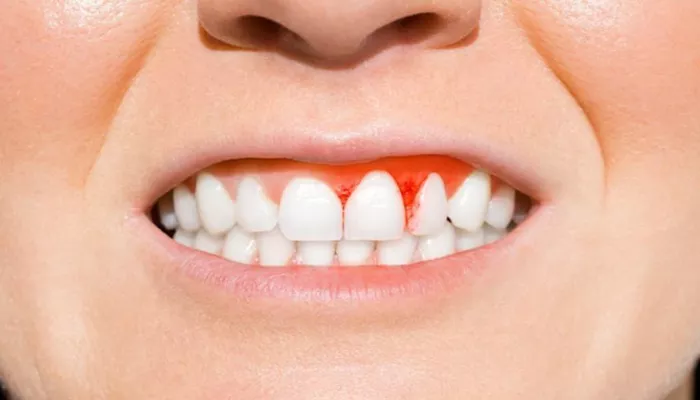Periodontal disease, also known as gum disease, is a serious oral health condition that can lead to tooth loss and other health complications if left untreated. While conventional treatments like deep cleanings and surgeries are commonly prescribed, many individuals seek natural ways to manage and reverse periodontal disease. This article will provide an in-depth exploration of how you can address periodontal disease naturally, offering practical tips and strategies to help you improve your gum health and overall oral hygiene.
What Is Periodontal Disease?
Periodontal disease is an infection of the tissues surrounding the teeth. It begins with gingivitis, the earliest stage of gum disease, characterized by inflammation and irritation of the gingiva (the part of the gum around the base of the teeth). If left untreated, gingivitis can progress to periodontitis, where the inflammation spreads deeper, leading to the destruction of the bone that supports the teeth.
SEE ALSO: When Is Bone Graft Needed for Periodontal Disease?
Causes And Risk Factors
The primary cause of periodontal disease is plaque buildup—a sticky, colorless film of bacteria that forms on teeth. Other factors that contribute to the development of periodontal disease include:
- Poor oral hygiene
- Smoking or tobacco use
- Genetic predisposition
- Certain medical conditions like diabetes
- Hormonal changes
- Medications that cause dry mouth
Natural Strategies to Reverse Periodontal Disease
1. Improving Oral Hygiene
a. Brushing Techniques
Brushing your teeth properly is the cornerstone of any effective oral hygiene routine. Use a soft-bristled toothbrush and fluoride toothpaste to gently brush your teeth twice a day. Employ a technique that ensures you reach all areas of your mouth, including:
- The front and back surfaces of your teeth
- The chewing surfaces
b. Flossing
Daily flossing is essential to remove plaque and food particles from between your teeth and under the gum line. Use dental floss or interdental brushes to clean these areas thoroughly. Flossing helps prevent plaque buildup that can lead to gum disease.
c. Mouthwash
An antimicrobial mouthwash can help reduce bacteria in the mouth. Look for mouthwashes with ingredients like chlorhexidine, essential oils, or fluoride. Be cautious with alcohol-based mouthwashes, as they can sometimes dry out the mouth and exacerbate gum problems.
2. Dietary Adjustments
a. Anti-Inflammatory Foods
A diet rich in anti-inflammatory foods can help combat gum disease. Incorporate foods such as:
Fruits and Vegetables: Citrus fruits, berries, leafy greens, and cruciferous vegetables like broccoli and Brussels sprouts.
Omega-3 Fatty Acids: Found in fatty fish like salmon, mackerel, and sardines.
Nuts and Seeds: Almonds, walnuts, and chia seeds.
b. Avoiding Harmful Foods
Certain foods can exacerbate periodontal disease or contribute to inflammation. Limit your intake of:
Sugary Foods and Beverages: Excess sugar feeds harmful bacteria in the mouth.
Refined Carbohydrates: White bread, pastries, and other processed foods.
Acidic Foods: Citrus fruits and tomatoes can contribute to enamel erosion if consumed in excess.
3. Herbal Remedies
a. Aloe Vera
Aloe vera has anti-inflammatory and antimicrobial properties that can help soothe and heal gum tissue. Applying aloe vera gel directly to your gums can reduce inflammation and promote healing.
b. Green Tea
Green tea contains polyphenols that have antioxidant and anti-inflammatory effects. Drinking green tea or using it as a mouth rinse can help improve gum health.
c. Essential Oils
Certain essential oils are known for their antimicrobial properties and can be used to support gum health. Some beneficial oils include:
Tea Tree Oil: Known for its antibacterial properties, tea tree oil can help reduce gum inflammation and bacteria. Dilute it with a carrier oil and apply it to your gums.
Clove Oil: Clove oil has analgesic and anti-inflammatory properties that can provide relief from gum pain. Use it sparingly, as it is potent.
4. Lifestyle Modifications
a. Quitting Smoking
Smoking is a major risk factor for periodontal disease. Nicotine impairs blood flow to the gums, making it harder for the body to fight off infections. Quitting smoking can significantly improve your gum health and overall oral hygiene.
b. Stress Management
Chronic stress can weaken your immune system and exacerbate periodontal disease. Incorporate stress-reducing practices into your daily routine, such as:
Exercise: Regular physical activity helps manage stress levels.
Mindfulness and Meditation: Practices like mindfulness and meditation can help reduce stress and improve overall well-being.
c. Staying Hydrated
Drinking plenty of water is essential for maintaining good oral health. Water helps wash away food particles and bacteria, preventing dry mouth and promoting saliva production, which is crucial for oral health.
Conclusion
Reversing periodontal disease naturally involves a comprehensive approach that includes improving oral hygiene, making dietary adjustments, utilizing herbal remedies, and adopting healthy lifestyle practices. By incorporating these strategies into your daily routine, you can support your gum health and potentially reverse the effects of periodontal disease.
However, it’s important to remember that natural remedies should complement, not replace, professional dental care.
Regular visits to your dentist are crucial for monitoring your progress and ensuring that your periodontal disease is managed effectively.

